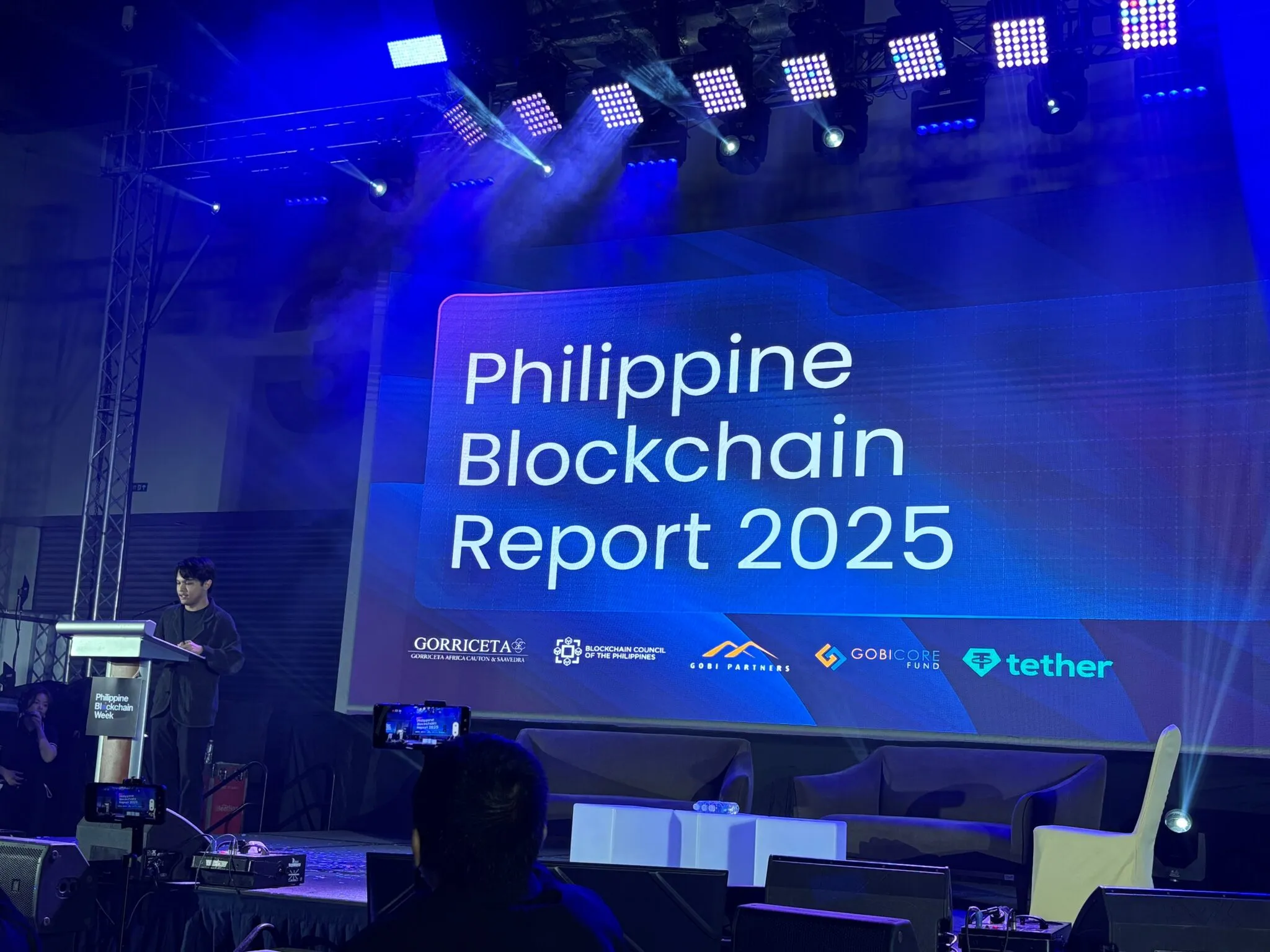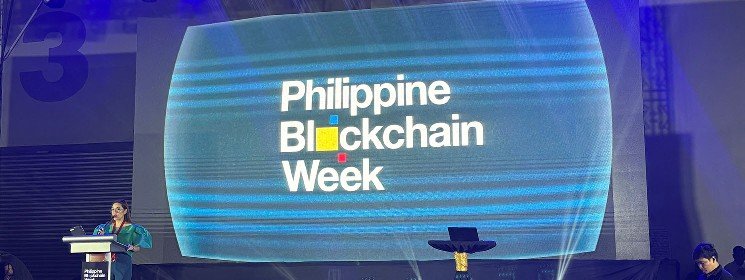More on utility, less on technicalities—this was what the Philippine Blockchain Week (PBW) ensured when it returned on stage this week at the SMX Convention Center in Pasay City, where it drew thousands of attendees from different parts of the globe.
Steering away from tech buzzwords, PBW 2025 focused on building a community that values and emphasizes developing real-world solutions instead of merely riding the wave of popularity without an actual goal.
Donald Lim, President of the Blockchain Council of the Philippines, delivers the opening speech at @philippinebc_wk. #PBW2025 #Decoded #CoinGeek pic.twitter.com/YjjsBrT2oa
— CoinGeek (@RealCoinGeek) June 10, 2025
Day 1 of PBW 2025, which took place on June 10, marked a significant moment for the Philippines as the Blockchain Council of the Philippines (BCP), led by Dr. Donald Lim, introduced the official report on the country’s digitalization status—a statistical analysis representing the PBW’s perseverance in putting the Philippines on the blockchain map.
Founding members of the Blockchain Council of the Philippines, together with members of the Gorriceta Africa Cauton & Saavedra, Gobi-Core Philippine Fund, and Tether, presenting the first-ever Philippine Blockchain Report 2025.
The Philippine Blockchain Report 2025
Unbeknownst to many, the Philippines has been leveraging blockchain technology since 2014, primarily within the realm of financial services, with a particular focus on remittances. Although global governmental involvement in establishing regulations for the blockchain sector has only recently become more pronounced, the Philippines has diligently laid the regulatory groundwork for this ecosystem since early 2017.

Carlo Chen-Delantar giving attendees an overview of the Philippine Blockchain Report 2025.
Presented by Carlo Chen-Delantar, Co-Founder and Partner of Gobi Partners, the report—an initiative launched by Gorriceta Africa Cauton & Saavedra, BCP, Gobi-Core Philippine Fund, and Tether—underscored the significant role of startups in shaping the blockchain landscape in the Philippines. These startups—Coins.ph, Satoshi Citadel Industries (SCI), and BloomSolutions, to name a few—have been at the forefront of utilizing blockchain technology to facilitate financial inclusion. Their efforts bore fruit as more established companies, such as Union Bank of the Philippines and the Philippine Digital Asset Exchange (PDAX), began integrating blockchain into their services and operations.
The financial sector served as the initial gateway for blockchain technology to gain a foothold in the Philippine market. This emergence was followed by a significant rise in blockchain gaming in 2020, predominantly driven by organizations such as Yield Guild Games (YGG) and Sovrun. Subsequently, the application of blockchain technology expanded beyond the gaming sector to encompass a variety of use cases, including the development of digital identities, enterprise solutions, and transportation systems. These developments helped establish blockchain’s role as more than just an avenue for digital currencies.
A snapshot of industry players in the Philippines that have integrated blockchain technology into their operations and services.
“Blockchain isn’t just about digital assets or decentralized finance; it’s about rebuilding trust in systems—something many of our institutions critically need,” said Congresswoman Hon. Richelle Singson.
From digital coin users of play-to-earn (P2E) games, Filipinos have made significant progress by leveraging blockchain technology to modernize operations and services while addressing long-standing issues.
While the Philippines is rapidly recognizing the power of blockchain in carving its digital path, the progress the country has made in recent years can be attributed not only to technological advancements but also to the proactive community that embraced the risks associated with blockchain and believed in its capacity to revolutionize various industries.
The Philippines has made significant strides since the introduction of blockchain, but much remains to be done to fully harness its potential.
“Whether you’re a builder, a policymaker, a regulator, or just exploring the space, this is not just a tech event; this is a movement. Let’s use this week to not just connect…but to create a blockchain-powered future that serves our people,” Singson noted during the opening of PBW 2025.
Onboarding early adopters
Technology can be intimidating to people with no technical background, and this is the greatest challenge that blockchain must overcome to become mainstream.
The pandemic in late 2019 may have taken a toll on the global healthcare ecosystem, but this catastrophe had a silver lining—it sparked the adoption of mobile payments and digital wallets, prompting not just the Philippines but much of the world to fast-track their digital transformation.
During the pandemic, “cryptocurrencies” have emerged as a prominent topic of discussion; however, their appeal appears largely confined to P2E gamers, traders, and certain financial institutions. The broader population, in contrast, tends to perceive these digital currencies as lacking tangible utility in their everyday lives.
A PBW 2025 panel moderated by Ida Mok, president of Women in Blockchain Alliance, examines how wallets are the true entryway for blockchain to become mainstream, not “cryptocurrencies.”
Ida Mok moderating a panel about the rising use of digital wallets and their importance in onboarding users.
Airdrops, tokens given away for free, have long been viewed as the best solution to getting people into the emerging technology ecosystem. But while the thought of having a free bitcoin in one’s wallet is enticing, many holders do not know how to use it other than to HODL and sell when the price skyrockets, which veers off from Bitcoin‘s original intention.
“Airdrops is not a really good way to get early adopters in. If we want to make it easy for people to get in…we need [to come] from a point of discovery,” said Jason Dominique, CEO of Onchain.
A true embodiment of utility, digital wallets nowadays are more than just a platform for storing and trading digital currencies. They have evolved into social wallets, which allow users to focus on using the app rather than worrying about its technical aspects, gas fees, and other features, transforming it into an “everyday product.” This evolution, however, is only starting, and with the rise of artificial intelligence (AI), digital wallets are set to transform with more utility.
“The time is now for people to actually see wallets not as crypto wallets but like a social identity,” said Biptap CEO Jonathan Low, who believes that in the future, businesses can utilize these social wallets to create trends that could reshape the financial industry and the ‘crypto’ market.
Getting lost in buzzwords
With so many technological advancements happening globally, it’s easy to lose our sense of legacy, but PBW regular Ian Utile returned to the stage to help attendees remember what is truly at the heart of innovation—decentralized and tokenized communities.
Ian Utile giving a keynote on the importance of communities and the integration of AI.
In this digital era, communities are classified based on the products and services they use, with Utile giving Meme and non-fungible token (NFT) communities as primary examples of these exclusive groups—circles that are now coexisting with AI, a tool being projected as the key driver of the future of technology.
AI is revolutionizing various industries, not by displacing the human workforce but by being seamlessly integrated into existing systems. In the Philippines, Utile said AI is being deployed at breakneck speed in different sectors, opening more opportunities for Filipinos.
However, none of the emerging communities should be viewed as superior to others, as Utile indicates that each possesses a distinct function within the ecosystem. While AI appears to be the most potent of these communities, it should be regarded not as a threat but rather as a valuable tool designed to enhance the effectiveness of the existing communities.
“Don’t be hung up on the word tokenized; that’s the future. Don’t be hung up on NFTs; that just means an exclusive, limited community, or memes that just means an inclusive, unlimited community. Think about how AI plays into all of these,” he said.
“Let’s not get so technical that we get away from humanity,” Utile noted. “If you spin yourself on tech talk, then you lose what actually matters, and what really matters is our purpose.”
Discourse continues
True to its goal, the opening day of PBW 2025 covered the expanding use cases of blockchain technology, from empowering micro, small, and medium enterprises (MSMEs) to abolishing the notion that technology is only for men, to give participants a better picture of the state of the digital revolution in the country and what’s to come.
Actor and restaurateur Marvin Agustin representing MSMEs during a panel discussion on blockchain with government officials.
Actor and chef Marvin Agustin, with support from the Department of Information and Communications Technology (DICT), led the promotion of blockchain in the food industry through “Fishblock,” an innovative take on Filipinos’ beloved street food, fishballs. This venture only accepts “crypto” as payments and comes with an exclusive NFT.
Women in Blockchain of the Philippines Founder Gail Macapagal also graced the event with a panel discussion on women empowerment in the tech space, joining Azintafy Founder Aya De Quiroz, entrepreneur Chantel Elloway, Women in Blockchain Asia’s Ida Mok, Gate.io CEO Laura Inamedinova, and AIBC Managing Director Olga Yaroshevsky, where they recounted their experiences within the male-dominated industry and discussed the contributions that women make to foster innovation.
Gail Macapagal posing with notable women in the tech space following a panel discussion on women empowerment in a male-dominated industry.
Coach Miranda Miner of Global Miranda Miner Group also gave the audience a quick lesson on ‘crypto’ trends, pump-and-dump, and the factors that drive the price of tokens.
Aya De Quiroz moderating a panel on memecoins and the world’s growing fascination with these tokens.
There was also a clashing discussion on memecoins moderated by De Quiroz, which saw Trust Wallet’s Rik Krieger arguing that there is nothing wrong with delving into these “shitcoins,” but not when you’re in the office, a jab to the Trump administration, whose made headlines in recent weeks following the launch of $TRUMP and $MELANIA tokens. While Krieger expressed deep opposition to memecoins, others like Political Pump Co-Founder Ph.D Jose Manuel Torres and Coinvesting Holding Chief of Staff, also known as the “Shitcoin Queen,” Karen Kriska see them as a fun way to get into the space. However, they were quick to remind users to be extremely cautious, with Torress saying memecoins are the best example for a DYOR, or do your own research.
Beyond the hype, PBW 2025 also gave us an overview of the current state of regulations in the blockchain space and the fintech ecosystem.
Watch: The Philippines is moving toward blockchain-enabled tech
Read the full article here
